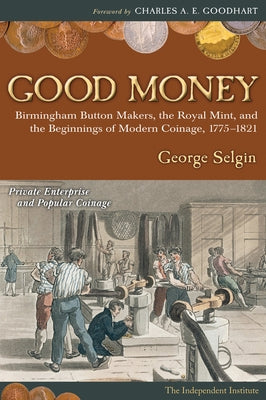Description
A fascinating story of the important yet virtually unknown episode in the history of money, this history chronicles the British manufacturers' challenge to the Crown's monopoly on coinage. In the 1780s, when the Industrial Revolution was gathering momentum, the Royal Mint failed to produce enough small-denomination coinage for factory owners to pay their workers. As the currency shortage threatened to derail industrial progress, manufacturers began to mint custom-made coins, called "tradesman's tokens," which served as the nation's most popular currency for wages and retail sales until 1821, when the Crown outlawed all moneys except its own. This book not only examines the crucial role of private coinage in fueling Great Britain's Industrial Revolution, but also sheds light on contemporary private-sector alternatives to government-issued money, such as digital monies, cash cards, electronic funds transfer, and--outside of the United States--spontaneous "dollarization."
Author: George Selgin
Publisher: Independent Institute
Published: 10/01/2011
Pages: 368
Binding Type: Paperback
Weight: 1.40lbs
Size: 8.90h x 5.90w x 1.00d
ISBN13: 9781598130430
ISBN10: 1598130439
BISAC Categories:
- History | Europe | Great Britain | General
- Business & Economics | Money & Monetary Policy
Author: George Selgin
Publisher: Independent Institute
Published: 10/01/2011
Pages: 368
Binding Type: Paperback
Weight: 1.40lbs
Size: 8.90h x 5.90w x 1.00d
ISBN13: 9781598130430
ISBN10: 1598130439
BISAC Categories:
- History | Europe | Great Britain | General
- Business & Economics | Money & Monetary Policy
About the Author
George Selgin is a research fellow at the Independent Institute and a professor of economics at the University of Georgia. He has contributed to numerous journals, including the Economic Journal, the Economic History Review, the Financial Times, and the Wall Street Journal. He is also the coeditor of Econ Journal Watch and the author of Bank Deregulation and Monetary Order, Less Than Zero: The Case for a Falling Price Level in a Growing Economy, and The Theory of Free Banking. He lives in Athens, Georgia.
This title is not returnable

